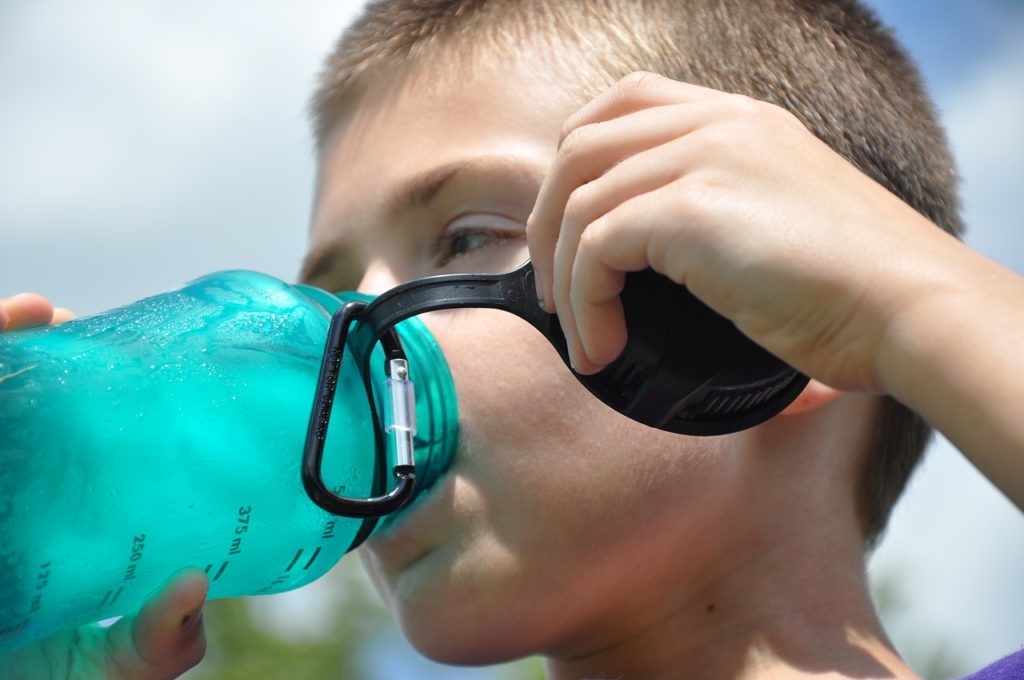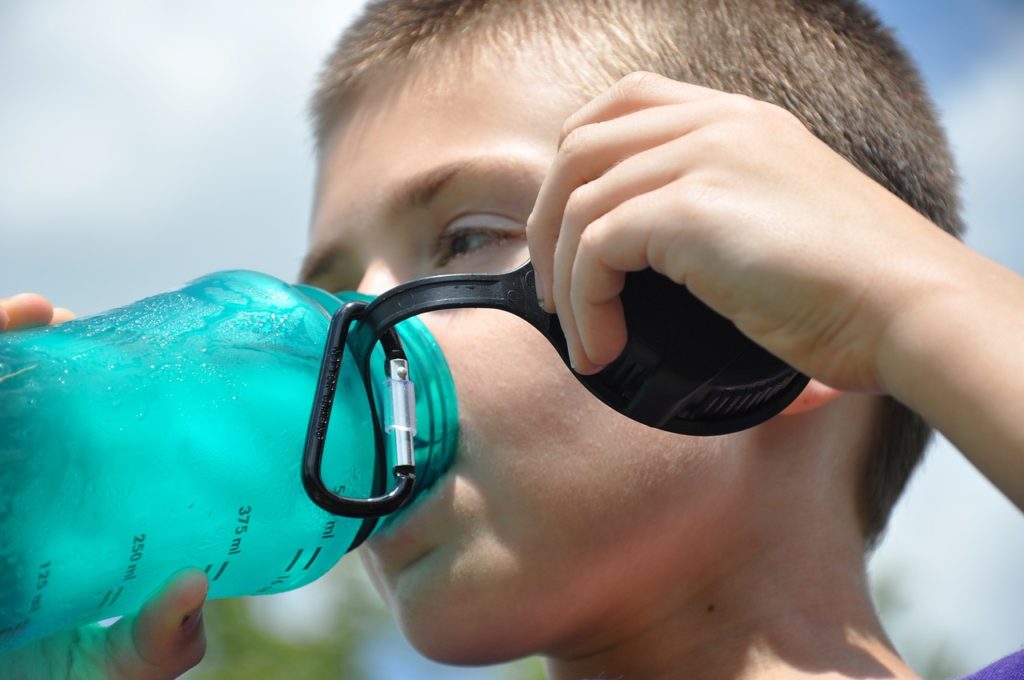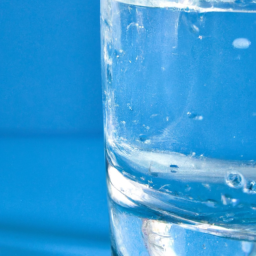In order to ensure optimal hydration and prevent heatstroke, it is crucial to choose the best water to drink. The type and quality of water you consume can have a significant impact on your body’s ability to stay hydrated, especially during hot summer months or strenuous physical activities. By selecting the right water for your hydration needs, you can maintain an optimal fluid balance, support your overall health, and keep potential risks associated with dehydration at bay.

Factors to Consider
When it comes to choosing the best water for optimal hydration, there are several factors that you should consider. Each factor plays a crucial role in determining the quality and suitability of the water you consume. By understanding these factors and making an informed decision, you can ensure that you stay properly hydrated and maintain good health.
Water Source
The source of the water you drink is an important consideration. Different sources can have varying levels of contaminants, minerals, and overall quality. Here are some common types of water sources:
Spring Water
Spring water comes from underground sources and is known for its natural purity. It is often rich in minerals and has a refreshing taste. However, it is essential to ensure that the spring water is sourced from a reliable and protected spring to avoid any potential contamination.
Purified Water
Purified water undergoes extensive filtration processes to remove impurities and contaminants. It can come from various sources, such as tap water, and is treated to meet strict purity standards. Purified water is typically free from minerals and additives, making it a safe choice for hydration.
Mineral Water
Mineral water naturally contains minerals and trace elements that can enhance the taste and provide potential health benefits. It is sourced from underground springs, and its composition is regulated to ensure consistency and safety.
Well Water
Well water is sourced from underground wells on private properties. While it can be rich in minerals, its quality may vary depending on the geological conditions of the area. Regular testing is necessary to ensure that well water is safe for consumption.
Distilled Water
Distilled water is produced by boiling water and condensing the steam to remove impurities. This process eliminates minerals, contaminants, and any potential pathogens. While distilled water lacks minerals, it is a suitable option for hydration.
Rainwater
Rainwater is collected from rooftops or other surfaces and can be a source of natural, untreated water. It is important to note that rainwater can be contaminated by pollutants in the atmosphere or on the collection surface, so proper filtration and purification may be necessary before consumption.
Tap Water
Tap water is supplied by local municipal systems and undergoes treatment processes to make it safe for consumption. The quality of tap water can vary depending on the region and the specific treatment methods used. Regular testing ensures that tap water meets safety standards.
Mineral Content
The mineral content of water refers to the presence of minerals and trace elements that can have significant impacts on taste and potential health benefits. Here are some common minerals found in water:
Calcium
Calcium is an essential mineral for bone health and muscle function. It also plays a role in maintaining proper nerve transmission and blood clotting. Having an adequate calcium intake through water can contribute to maintaining overall health.
Magnesium
Magnesium is involved in various biochemical reactions in the body and plays a crucial role in maintaining heart health, muscle function, and nerve function. Drinking water that contains magnesium can contribute to meeting the body’s magnesium requirements.
Sodium
Sodium is an electrolyte that helps maintain fluid balance and proper nerve and muscle function. While excessive sodium intake can be detrimental to health, having an appropriate amount of sodium in water can be beneficial, especially for those engaging in strenuous physical activities.
Potassium
Potassium is necessary for maintaining proper fluid balance, nerve function, and muscle contractions. It also plays a role in regulating blood pressure. Drinking water that contains potassium can help meet the body’s potassium needs.
Bicarbonate
Bicarbonate contributes to maintaining the body’s acid-base balance. It acts as a buffer, helping to neutralize excess acidity in the body. Water that contains bicarbonate can aid in maintaining optimal pH levels.
Fluoride
Fluoride is a mineral that helps prevent tooth decay. Water fluoridation, where fluoride is added to water supplies, has been recognized as a successful public health measure. Consuming fluoridated water can contribute to dental health.
Sulfate
Sulfate is a naturally occurring mineral that contributes to the flavor of water. While it is generally safe for consumption, excessive sulfate levels can have a laxative effect. Adequate sulfate intake from water can be beneficial for taste preferences.
Silica
Silica is a trace mineral that can contribute to the health of your hair, skin, and nails. It also plays a role in maintaining healthy connective tissues. Drinking water that contains silica can provide these potential benefits.
pH Level
The pH level of water measures its acidity or alkalinity on a scale of 0 to 14. Here are some common pH levels and their implications:
Neutral pH (7)
Water with a pH of 7 is considered neutral, neither acidic nor alkaline. Drinking water with a neutral pH is generally safe and suitable for most individuals. It does not significantly impact the body’s pH balance.
Alkaline Water
Alkaline water has a higher pH level, often ranging from 8 to 9 or even higher. Proponents claim that alkaline water can neutralize excess acidity in the body, promote better hydration, and even offer antioxidant benefits. However, scientific evidence supporting these claims is limited.
Acidic Water
Water with a pH level below 7 is considered acidic. While naturally occurring acidic water is rare, some filtration systems may produce slightly acidic water. Consuming acidic water in moderation is generally safe, but long-term exposure to highly acidic water may have adverse effects on tooth enamel and digestive health.
Electrolytes
Electrolytes are minerals with an electric charge that help maintain fluid balance, transmit nerve signals, and facilitate proper muscle contractions. Here are some common electrolytes found in water:
Sodium
Sodium is one of the primary electrolytes in the body and is crucial for maintaining fluid balance. It plays a key role in nerve transmission and muscle function. Drinking water with sodium can help replenish electrolytes lost through sweat during physical activity.
Potassium
Potassium is necessary for proper muscle and nerve function, fluid balance, and maintaining a healthy blood pressure. Consuming water that contains potassium can contribute to meeting the body’s potassium needs.
Calcium
Calcium is involved in muscle contractions, nerve transmission, and maintaining healthy bones and teeth. Drinking water with calcium can be a source of this essential mineral.
Magnesium
Magnesium plays a vital role in various physiological processes, including energy production, muscle function, and nerve transmission. Water that contains magnesium can help meet your body’s magnesium requirements.
Chloride
Chloride is an essential electrolyte that helps maintain proper fluid balance, aids in digestion, and supports nerve and muscle function. Drinking water with chloride contributes to your overall electrolyte balance.
Bottled vs. Tap Water
The choice between bottled water and tap water is a common dilemma for many individuals. Several factors can influence this decision:
Quality Control
Bottled water is subject to rigorous quality control measures to ensure safety and consistency. On the other hand, tap water is monitored by municipal water treatment facilities, which must adhere to strict regulations to provide safe drinking water. Both options can be considered safe for consumption, but bottled water often comes with a higher level of assurance.
Safety
Bottled water is typically considered safe, as it undergoes filtration and purification processes to remove impurities. Tap water is also treated to ensure safety, but it may contain trace amounts of contaminants. However, tap water is regulated by government agencies to meet certain standards, making it generally safe for consumption.
Convenience
Bottled water provides convenience, as it is readily available in various sizes and can be easily carried when on the go. Tap water is widely accessible at home or public locations, but it may require additional steps like filling a reusable bottle or using a faucet filter for enhanced taste.
Cost
Tap water is significantly more cost-effective than bottled water. While the initial cost of purchasing a water filtration system or filter may be present, the overall cost of consuming tap water is much lower compared to regularly purchasing bottled water.
Environmental Impact
Bottled water has a substantial environmental impact due to plastic pollution and the carbon footprint associated with manufacturing, transportation, and disposal. Tap water, on the other hand, has a significantly lower environmental impact, especially if consumed using reusable bottles or filtered through sustainable filtration systems.
Filtered Water
Filtered water has gained popularity due to its ability to remove impurities and enhance taste. Here are some key points to consider when it comes to filtered water:
Types of Filters
Various types of filters are available for removing impurities from water. These include activated carbon filters, reverse osmosis systems, and ultraviolet (UV) filters, among others. Each filter type targets specific contaminants and provides different levels of filtration.
Removal of Contaminants
Filtered water goes through a filtration process that can eliminate various contaminants and impurities such as chlorine, lead, bacteria, and chemicals. The extent of filtration depends on the specific filter used and its effectiveness in removing specific contaminants.
Improved Taste
Filtration helps remove any unpleasant odors or flavors from the water, resulting in improved taste. It can also enhance the clarity and appearance of the water, making it more appealing to consume.
Cost Effectiveness
While purchasing a water filtration system or filter may involve an initial cost, the long-term savings can be significant compared to regularly buying bottled water. Filtered water provides a more cost-effective solution for access to clean and great-tasting water.

Temperature
The temperature of the water you drink can influence your hydration experience. Here are some temperature options to consider:
Cold Water
Cold water is refreshing and can be especially appealing during hot weather or after physical exertion. It can help cool down your body temperature and provide immediate relief.
Room Temperature Water
Room temperature water is a neutral option that is often preferred by those who find cold water uncomfortable to drink. It is easily accessible and suitable for regular hydration throughout the day.
Warm Water
Warm water can have soothing effects on the digestive system and may be especially beneficial for those with digestion issues. It can aid digestion and promote a sense of relaxation.
Taste Preference
Water taste can vary based on personal preferences and the presence of additives or flavors. Here are some factors to consider when it comes to taste preference:
Natural
Many individuals prefer the natural taste of water without any additives or flavors. Natural water taste can vary depending on the mineral content and source.
Additives
Water additives, such as electrolytes or vitamins, can enhance the taste and potentially offer additional health benefits. However, it is important to choose additives that are safe and have been proven effective.
Flavored Water
Flavored water provides an alternative to plain water and can be a more enjoyable option for those who find water tasteless or bland. However, it is important to choose flavored water options without excessive sugar or artificial additives.
Infused Water
Infused water involves adding fruits, herbs, or vegetables to water to infuse it with natural flavors. This can provide a refreshing and flavorful way to stay hydrated, while also incorporating additional nutrients from the infused ingredients.

Environmental Impact
Considering the environmental impact of the water you consume is crucial for sustainability. Here are some aspects to keep in mind:
Plastic Pollution
Bottled water consumption contributes to plastic pollution, as many single-use bottles end up in landfills or as litter. Choosing alternatives such as tap water or using reusable bottles can help mitigate plastic waste.
Water Source Depletion
Excessive use of water from natural sources, such as springs or aquifers, can deplete water reserves and disrupt ecosystems. It is important to consider the sustainability of water sources and opt for responsibly sourced water.
Carbon Footprint
The production, transportation, and disposal of bottled water contribute to carbon emissions. By reducing bottled water consumption and choosing more sustainable options, you can help reduce your carbon footprint.
Recycling
Proper recycling of plastic bottles can help decrease waste and conserve resources. However, recycling rates for plastic bottles are often low, and many still end up in landfills. Choosing reusable bottles or alternative water sources can minimize the need for recycling and its associated environmental impact.
By considering these factors, you can make an informed decision about the best water for optimal hydration. Remember that individual needs and preferences may vary, so it is important to find the water source that aligns with your health goals, taste preferences, and environmental values. Stay hydrated and make choices that support both your well-being and the planet.


